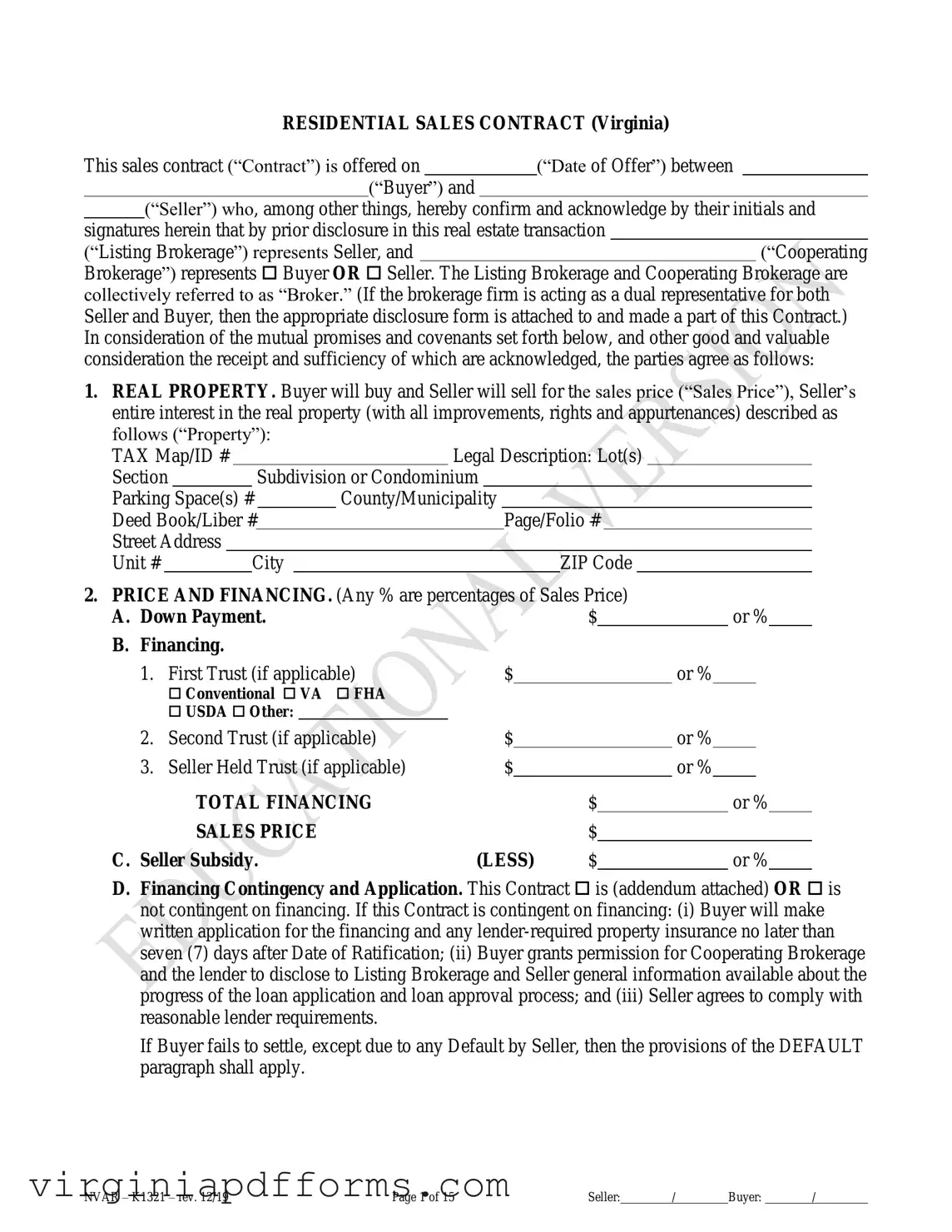Fill in a Valid No Broker Residential Sales Virginia Template
The No Broker Residential Sales Virginia form is a specialized contract used in real estate transactions where no broker is involved. This form outlines the agreement between a buyer and seller regarding the sale of residential property in Virginia, detailing essential terms such as the sales price, financing arrangements, and settlement procedures. Understanding this form is crucial for both parties to ensure a smooth transaction without the involvement of a real estate broker.
Access My Document Now

Fill in a Valid No Broker Residential Sales Virginia Template
Access My Document Now

Access My Document Now
or
Free No Broker Residential Sales Virginia File
Need this form wrapped up fast?
Finish No Broker Residential Sales Virginia online — edit, save, download without effort.